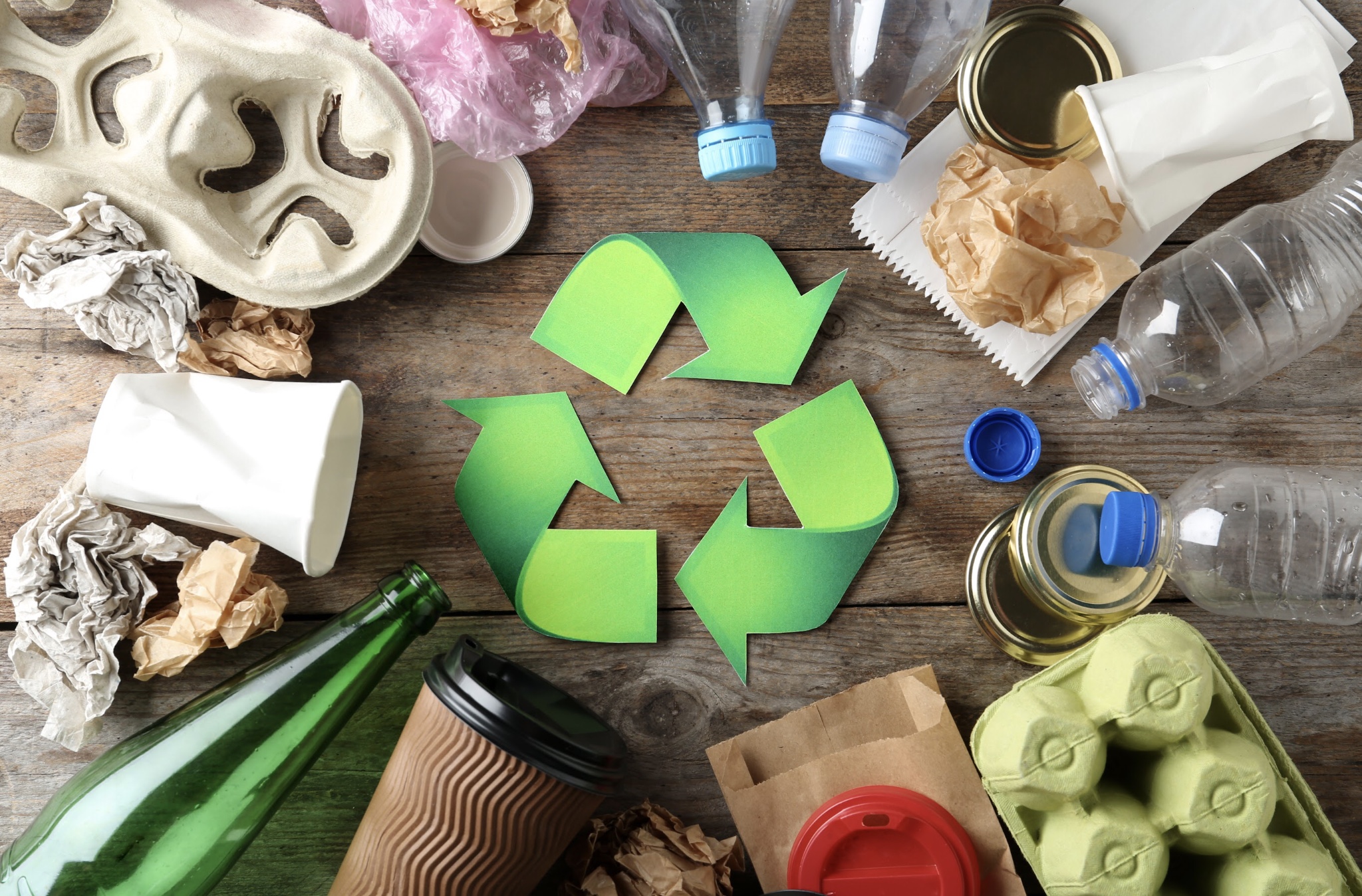Aspirational recycling can undo your efforts to help the planet
By Misty Milioto
You’ve made the smart decision to recycle (good for you!), but it’s important to know exactly what is—and isn’t—recyclable. “Aspirational recycling” is a term that refers to feeling like something should be recyclable (even though it may not be) and then tossing it in the recycling bin. Even though you’re coming from the right place, aspirational recycling can cause recycling contamination, and the whole load may need to be thrown out. Here, Charles Haverfield, packaging expert at US Packaging & Wrapping’s sets the record straight on eight lesser-known materials often mistaken as recyclable and offers tips on proper disposal.
Plastic Bags
As convenient as it may seem, single-use plastic bags cannot be thrown into the recycling bin. “Soft plastics get caught in the gears of the sorting machines, leading to broken or damaged facilities,” Haverfield says. “Other culprits include bread wrappers, cereal bags, and sandwich bags.”
Plastics 3 to 7
The numbers located inside the recycling symbol on packaging materials refer to a plastic’s resin code. “Numbers 1 and 2 are easily recyclable, [but] anything with numbers 3 through 7 is more difficult,” he says. “For example, polyvinyl chloride (PVC) has a number 3 resin code due to lack of demand, so it is more difficult to recycle, as fewer facilities accept them.”
Broken glass
Bottles and jars are the only glass materials that can be recycled – and even then, only in some areas. “Anything else, like glass from a broken mirror, cannot be recycled,” Haverfield says. “Instead, you should wrap the broken glass in old newspaper and put it in your general trash.”
Batteries and Electronics
Rechargeable batteries or lead-acid batteries cannot be recycled or thrown in the garbage, as they pose an environmental safety risk. “Instead, take them to a local consumer technology or auto parts store,” Haverfield says.
Chips and Candy Packets
“Not all snack packaging can be recycled, as it may contain several non-recyclable materials,” he says. “This means they fall into a multi-layer flexible packaging category, and these products are non-recyclable.”
Scrap Wood and Some Metals
“Recycling wood is complicated as finished surfaces, whether it’s varnish, wax or wood treatment, cannot be recycled,” he says. “Untreated wood may be recyclable, but it does not belong in general recycling. Instead, it should be taken to a wood recycling specialist.”
Additionally, Haverfield says that some metal items are not eligible for recycling, including motor oil cans, paint cans, pots and pans, and some car parts.
Wrapping Paper
While some wrapping paper can be recycled, some varieties (foil-lined wrapping paper with heavy glitter or other decorations) cannot. “A good indicator of recyclability is the scrunch test,” he says. “If your paper stays scrunched in a ball, it can usually be recycled.”

Disposable Coffee Cups
“In the case of coffee cups, the outside may be paper, but the interior is lined with a fine film of polyethylene,” Haverfield says. “This prevents your cup from leaking, but it means the cups themselves are not recyclable in most areas.”







Please address store recycling options, especially for PE 3-7. Thanks.